June 4, 2025 | 03:37 GMT +7
June 4, 2025 | 03:37 GMT +7
Hotline: 0913.378.918
June 4, 2025 | 03:37 GMT +7
Hotline: 0913.378.918
The relationship between agricultural economics and the environment plays a crucial role in sustainable development, particularly for businesses in the livestock sector.
From Hung Nhon Group's development practice, it can be seen that the application of high-tech, circular and environmentally friendly livestock models not only helps to minimize negative impacts on the ecosystem but also creates sustainable economic value.
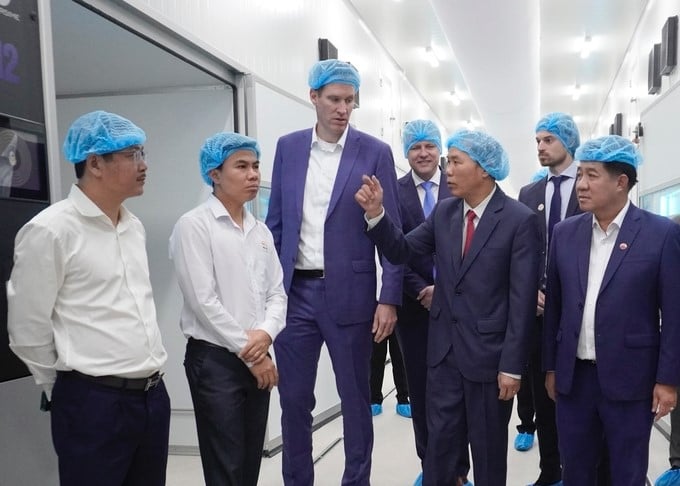
Mr. Vu Manh Hung (outer right) with leaders of the Ministry of Agriculture and Environment, leaders of De Heus Group in Asia and Vietnam, and leaders of VAN News visited the high-tech veterinary medicine factory in Bac Ninh. Photo: Minh Phuc.
The first factor is to minimize environmental pollution. Large-scale livestock farming can cause problems with waste, water pollution, and emissions. Applying modern waste treatment technologies, such as biogas, and reusing agricultural by-products helps minimize negative impacts on the environment.
The second factor is optimizing resources through a circular economy model. This model helps to maximize the use of resources from livestock farming, such as organic fertilizer for crops, and creates renewable energy from waste.
The third factor is improving product quality and economic efficiency. Sustainable livestock farming enhances product quality through rigorous control processes, ensuring food hygiene and safety, which in turn improves brand value and competitiveness.
The fourth factor contributes to socio-economic development. Sustainable agricultural enterprises not only generate profits but also contribute to creating jobs, increasing incomes for rural workers, and promoting environmentally friendly development standards within the industry.
In general, the relationship between the agricultural economy and the environment is a two-way interaction. If businesses learn how to balance economic growth with environmental protection, they will achieve their long-term objectives.
In the process of developing large-scale livestock models and applying high technology, Hung Nhon also faces many difficulties and barriers related to technology, environment, land, and policy.
Applying high technology in livestock farming requires significant investment in modern barn systems, automated equipment, waste treatment technology, and disease control measures. In recent years, Hung Nhon has imported numerous advanced technologies from developed countries, including the Netherlands, Germany, and Japan, to apply in its production.
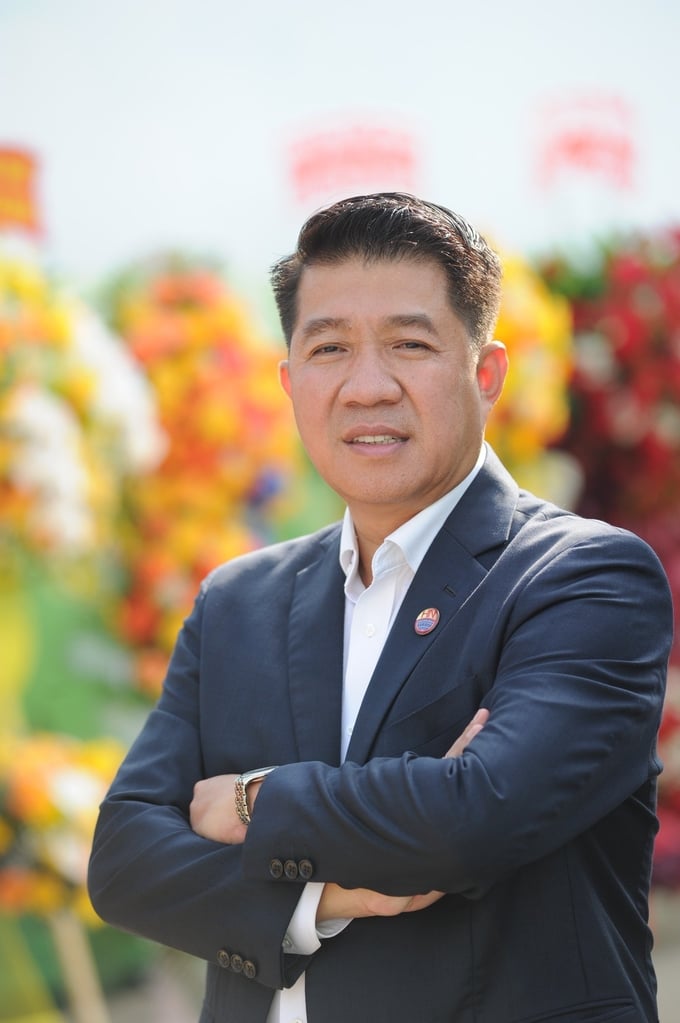
Mr. Vu Manh Hung - Vice President of Vietnam Digital Agriculture Association, Chairman of Hung Nhon Group.
Another challenge is that expanding livestock farms requires a large area; however, finding land in a favorable location, ensuring a safe distance from residential areas and having synchronous infrastructure is a very difficult problem.
Not stopping there, procedures related to land use conversion and farm construction licensing still require a significant amount of time and coordination with multiple management agencies.
In my opinion, the merger of the Ministry of Agriculture and Rural Development (MARD) and the Ministry of Natural Resources and Environment (MONRE) into the Ministry of Agriculture and Environment will be a significant step forward in addressing challenges in the livestock industry and promoting sustainable development.
Currently, policies on agricultural development and environmental protection are often not well synchronized, resulting in numerous shortcomings in the implementation process. When the two ministries merge, a unified policy system will be established, making it easier for businesses to access and implement regulations. Livestock businesses also do not need to work with numerous agencies or carry out multiple procedures to address land, environmental, and agricultural development issues as they did previously.

According to Mr. Vu Manh Hung, businesses that know how to balance economic growth and environmental protection will achieve long-term goals.
The combination of the two ministries can create stronger incentive mechanisms for green and sustainable agricultural models, such as financial and technological support for circular livestock farming models, and and developing preferential policies for enterprises applying high technology.
In particular, when the MARD and the MONRE merge, livestock farming areas can be planned more effectively, ensuring that there is sufficient suitable land to develop high-tech livestock farms while maintaining environmental balance.
I also expect the Ministry to have policies to support livestock enterprises in expanding export markets, supporting human resource training, developing specialized training programs on high-tech livestock farming and environmental management to improve productivity and product quality.
This change will help businesses like Hung Nhon Group have more opportunities to develop, while contributing to Vietnam's green and sustainable agriculture.
I would like to congratulate the Vietnam Agriculture Newspaper and the Natural Resources and Environment Newspaper on their official merger to form the VAN News. This is a significant event, not only in the media field but also for the sustainable development of the agricultural sector and environmental protection.
Previously, information on agriculture and the environment was often transmitted separately on two different press platforms, sometimes lacking synchronization. When merged, the Newspaper will provide more comprehensive information, helping people, businesses, and managers have an overall view of both fields. This helps avoid overlap or inconsistency in the transmission of policy information, especially regulations related to sustainable agricultural development.
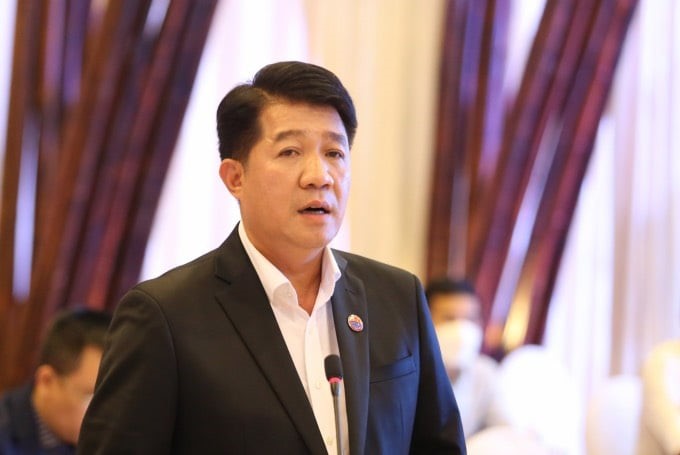
Mr. Vu Manh Hung - Chairman of the Board of Directors of Hung Nhon Group.
Agriculture and the environment are closely related, but in the past, there were sometimes conflicts between production development and resource and environmental protection. The new newspaper can act as a bridge to help stakeholders better understand how to develop the economy while protecting the environment. Better communication will help raise awareness of sustainable production models among farmers, businesses and consumers.
The merger also helps VAN News become a larger, more influential source of information, supporting businesses and farmers to quickly access new policies, scientific and technological advances and modern production models. Businesses like Hung Nhon Group can leverage this platform to share their experiences and promote high-tech livestock farming models, thereby helping to raise awareness of green, circular agriculture.
I expect the Newspaper to become an in-depth forum, quickly and accurately updating information on agricultural policies, environmental protection and sustainable development.
Newspapers need to have in-depth analysis articles that reflect the current situation, challenges and propose practical solutions for businesses, managers, and people. Newspapers can play an intermediary role in reflecting the difficulties and problems faced by businesses and individuals to management agencies, thereby promoting more effective policies. At the same time, Newspapers can also help convey the government's policies and guidelines in an easy-to-understand and accessible way to the community.
I would like to send my best wishes to VAN News - a strange yet very familiar name, integrating in it so many humane messages, so many vital areas of life, so many information values, so many aspirations to strive with managers, businesses, international organizations, industry associations, cooperatives, farmers... towards a green future, a better life.
Translated by Quynh Chi
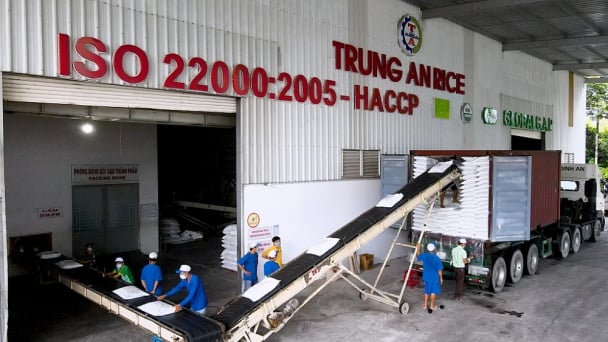
(VAN) On June 5, in Can Tho City, the Vietnam Rice Industry Association (VIETRISA) and Trung An Company will hold a ceremony to export the first shipment of 'Green and Low-Emission Vietnam Rice' to Japan.
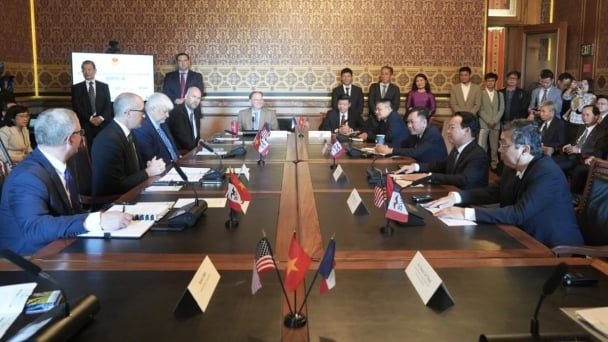
(VAN) Minister Do Duc Duy believes this event will mark the start of a new chapter in deeper cooperation between Vietnam’s agricultural sector and the state of Iowa.
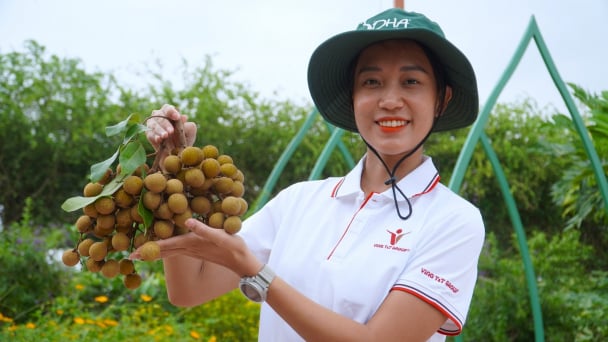
(VAN) Once merely a fruit found in local markets, Thoi Hung longans are now featured on supermarket shelves in the United States and Australia under the brand 'King Longans' – the king of longans.
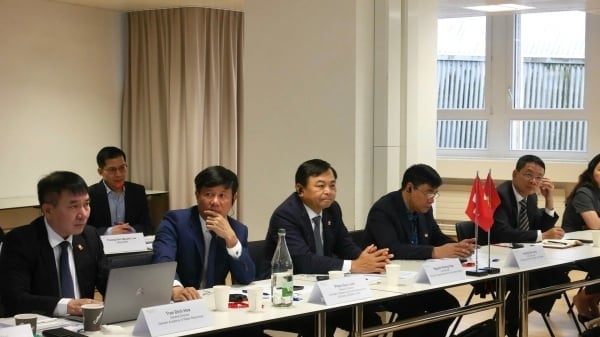
(VAN) On June 2, Deputy Minister Nguyen Hoang Hiep worked with the Swiss State Secretariat for Economic Affairs, the Swiss Agency for Cooperation and Development and Head of Infrastructure Financing Dagmar Vogel.
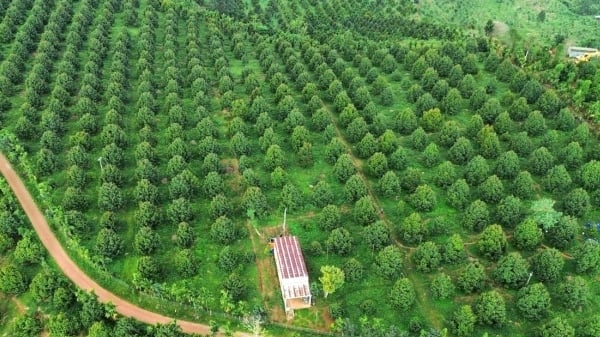
(VAN) The Prime Minister assigned the Minister of Agriculture and Environment to direct localities to review and fully prepare the necessary conditions (such as crop varieties, livestock, materials, fertilizers, etc.) for production.
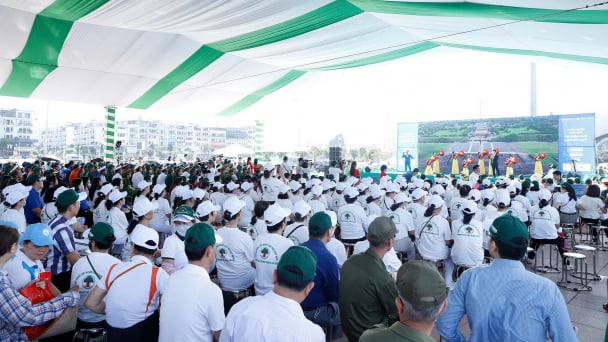
(VAN) On June 1, a grand meeting was held in Ha Long city, Quang Ninh province, to celebrate World Environment Day and launch the National Action Month for the Environment 2025.

(VAN) From the meeting in Ha Long, the United Nations called for the establishment of a legally binding global treaty to end plastic pollution.